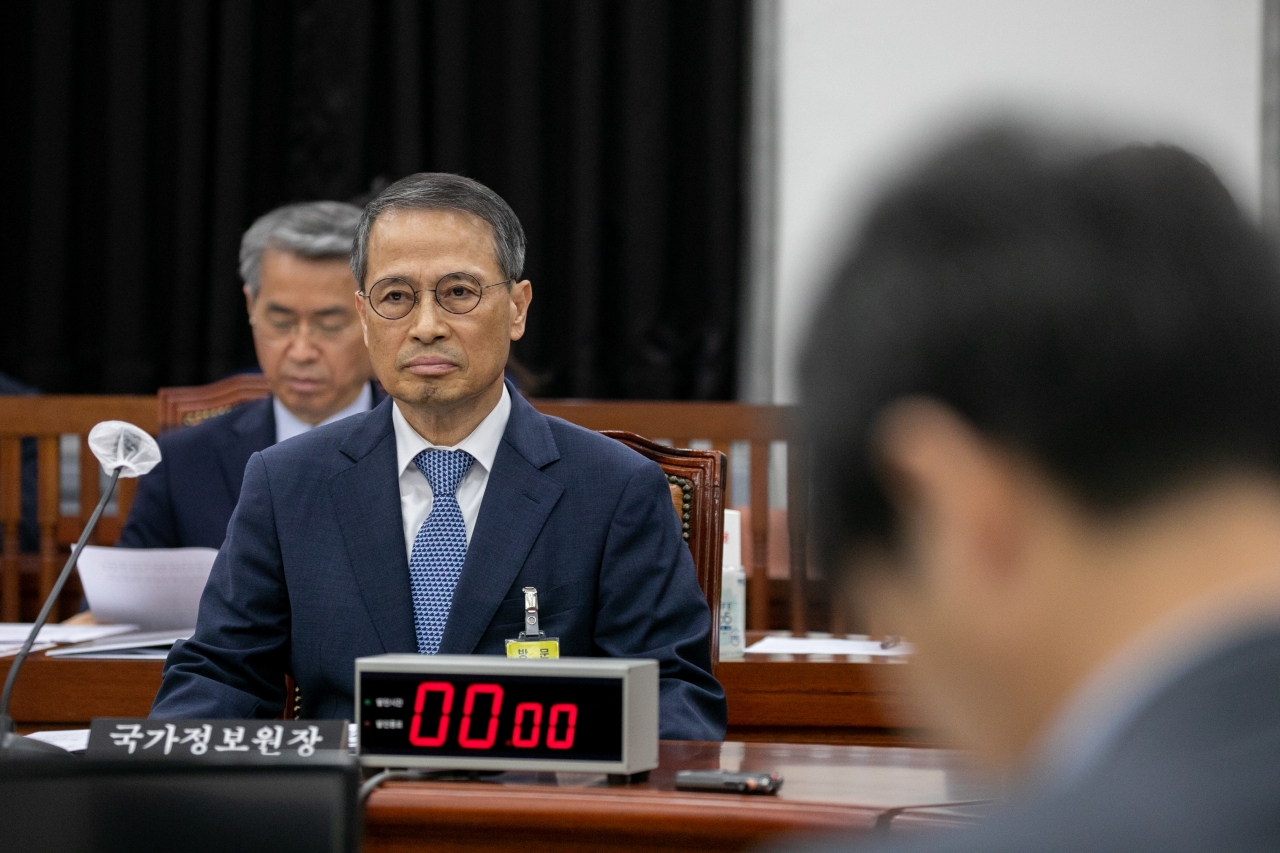 |
Kim Kyou-hyun, the director of the National Intelligence Service, attends the plenary session of the National Assembly intelligence committee on Thursday. (Yonhap) |
South Korea’s intelligence agency believes North Korea is planning a number of military provocations around this week’s trilateral summit with the US and Japan, or the joint drills with US troops later this month.
Rep. Yoo Sang-bum, the executive secretary of the National Assembly intelligence committee, told reporters Thursday signs of North Korea preparing an imminent ICBM launch were detected by the National Intelligence Service.
There has been an unusual increase in activities around missile production facilities recently, the lawmaker said, quoting the NIS, and that the provocations being planned may include launches of tactical nuclear-capable missiles.
The NIS said there is a chance North Korea could make another attempt at the previously botched spy satellite launch around its founding anniversary on Sept. 9 for greater impact, Yoo said.
The North’s leader, Kim Jong-un, has made the launch’s success a top priority for the remainder of the year. The NIS found that North Korea has been intensively testing engine and fuel systems, he said. He added that the North believes the systems had caused the failure of May's launch of what would have been its first military spy satellite.
The preparations for military actions come as North Korea is witnessing exacerbating food insecurity. The NIS estimates that the number of starvation deaths that took place there between January and July this year is more than double that of the annual average in the past five years, he said.
To prevent unrest, North Korea recently formed a task force dedicated to cracking down on dissidents, he said. Special efforts are being made to repress dissent among North’s younger generations in particular.
Amid food scarcities and tighter surveillance, more have escaped North Korea this year since COVID-19. Nearly a hundred were confirmed to have fled the country this year, which is three times that of the whole of last year, he said. Once border controls are eased, defections are anticipated to increase even further.






![[Weekender] Korea's traditional sauce culture gains global recognition](http://res.heraldm.com/phpwas/restmb_idxmake.php?idx=644&simg=/content/image/2024/11/21/20241121050153_0.jpg)
